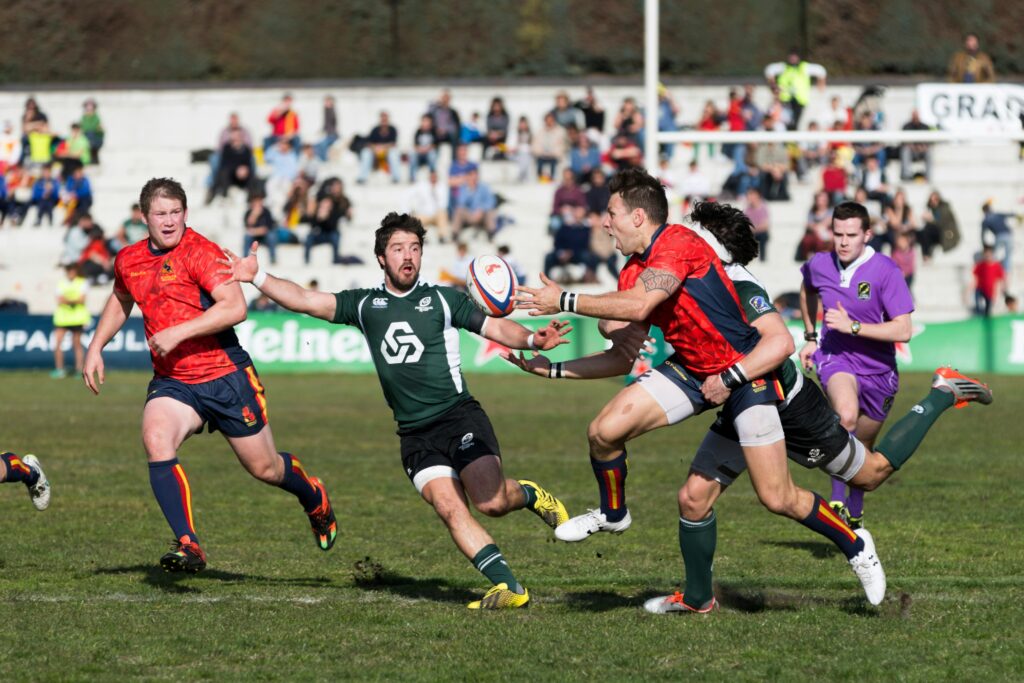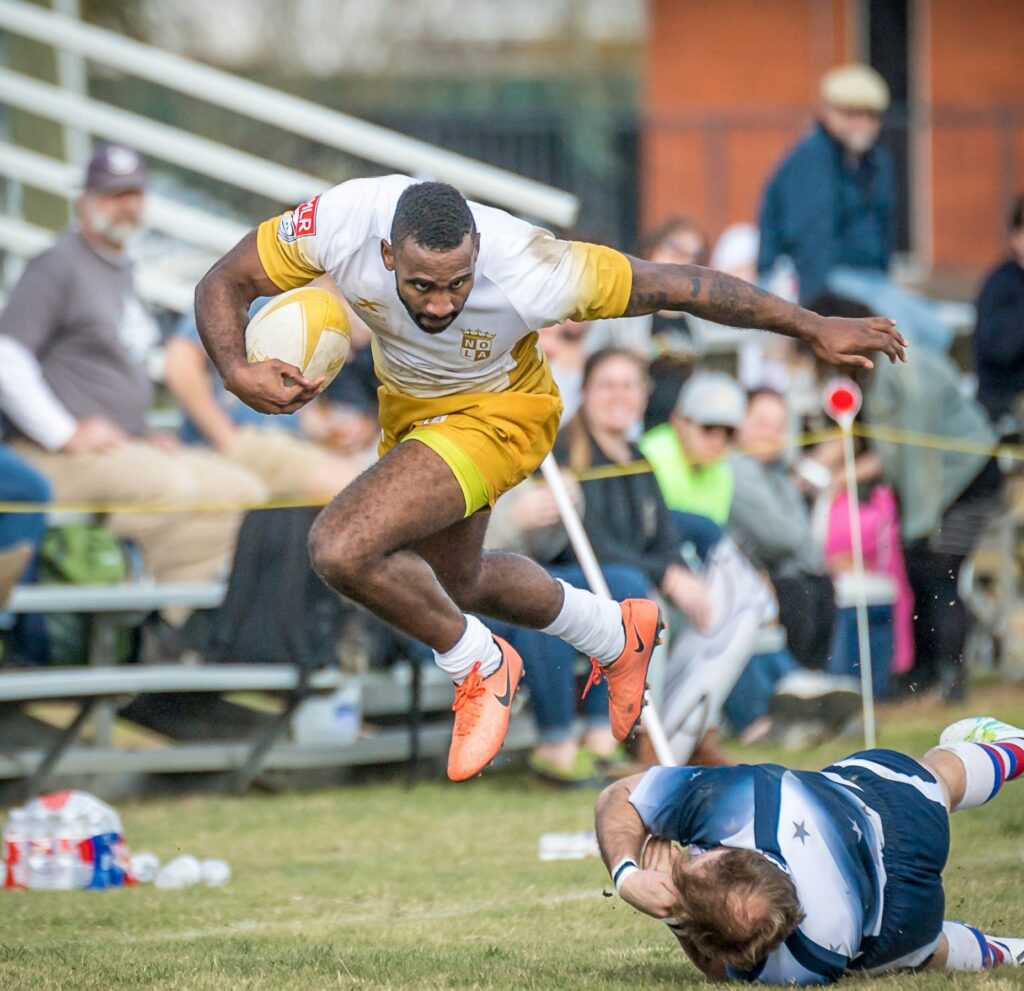Rugby union’s path to becoming professional started in 1995. This changed the sport forever.
I’ve been interested in this change since I first got my hands on a rugby ball.
Let’s explore how it happened and what it means for the game we enjoy.
The Amateur Roots of Rugby Union
Rugby union began as a gentleman’s game. For over a hundred years, it stayed proudly amateur.
But things weren’t as great as they looked on the outside.
Shamateurism: The Ugly Truth
Ever heard of “shamateurism”? It’s not as fun as it sounds.
Some players were being paid under the table, which went against the idea of amateurism.
Vernon Pugh, who led the International Rugby Board (IRB), knew changes needed to happen.
The Rugby League Threat
Rugby league, the pro version of union, started pulling away top players with big money.
The IRB couldn’t ignore this anymore; they were losing their best athletes.
August 1995: The Game-Changing Decision
Then came August 1995. The IRB made a huge decision to let professionalism into rugby.
Suddenly, stars like Jonah Lomu could make a living from their amazing talents.

Immediate Aftermath: Chaos and Opportunity
But the change wasn’t easy.
Clubs rushed to sign players, while national unions like the Rugby Football Union (RFU) had to rewrite rules right away.
The Evolution of Professional Rugby (1995-2024)
In nearly 30 years since that big decision, rugby union has changed completely.
Player Welfare and Careers
Gone are the days when players needed side jobs.
Now, great athletes like Owen Farrell can focus fully on rugby careers.
Still, with being pro came new problems – longer seasons and tougher training schedules.
Club and International Structures
The rugby scene transformed a lot.
New contests like Super Rugby appeared, giving a chance for pro play all year round.
International events like the Rugby World Cup became even bigger shows.
Global Growth and Commercialization
Rugby spread way beyond its old strongholds.
Media rights and sponsorships have poured billions into the sport.
Famous places like Twickenham and Eden Park turned into global brands — not just stadiums anymore.
The Impact on the Game

Professionalism has brought good and bad for rugby union.
On one hand, we’ve seen thrilling athletic displays and worldwide expansion.
On the flip side, some believe the sport lost touch with its humble beginnings.
The Money Game
With rugby now valued at over $10 billion globally, it’s big business.
Top players can earn more than $1.5 million a year—such a change from amateur times!
But all this money raises worries about the true spirit of the sport and how players are treated.
Rugby union’s journey to professionalism has been exciting and has reshaped our beloved game in many ways.
The Future of Professional Rugby Union
Looking ahead, rugby keeps changing. What will we see in the next 29 years?
Global Expansion
World Rugby (formerly IRB) is working hard to grow in new places.
Countries such as Japan and the USA are starting to become rugby powerhouses, challenging traditional leaders like New Zealand and South Africa.
Tackling Player Welfare
As games get tougher, player safety is more important than ever!
The rugby world is figuring out how to keep athletes safe without losing what makes the game special—expect more focus on concussion rules and tackling techniques soon.
Lessons from the Past
Getting to professionalism wasn’t perfect—there were bumps along the way!
What can we learn from those early days?
The Will Carling Effect
Remember Will Carling? He was England’s captain during amateur times and faced backlash when he pushed for player payments.
His story highlights how hard some found it to accept change—a lesson in managing transitions for sure!
The Importance of Governance
Early professionalism felt wild! Now organizations like RFU and NZRU have strong systems up and running.
Good governance has been crucial for growth and stability in rugby’s journey forward.
Balancing Act: Commercialization vs. Tradition
Looking ahead, rugby’s job is to balance making money with honoring its rich traditions.
The Six Nations Dilemma
Consider the Six Nations Championship—it’s a money-maker but there’s pressure to include newer teams like Georgia too!
How do we grow without losing what makes it great?
Keeping the Grassroots Alive
With so much attention on pro play, there’s a risk that amateur and youth rugby gets ignored.
Smart unions are investing in these foundations to ensure a bright future for everyone involved in rugby!
The Technology Factor
Technology keeps changing how we play and watch rugby too!
VAR and Beyond
Video Assistant Referees (VAR) have already made an impact—what comes next? AI coaching? Virtual reality training?
Who knows? The possibilities could truly change everything!
Conclusion: A Game Forever Changed
Deciding to go pro in 1995 changed everything about rugby union forever!
From Jonah Lomu’s epic tries to massive events like today’s Rugby World Cup, professionalism has gifted us incredible moments of pure magic!
Yet challenges remain—from worries about player care to fears around losing what makes rugby special.
As we look towards tomorrow, one thing’s clear: rugby will keep evolving! Balancing both spirit and opportunity is key moving forward!
Whether you’re at Murrayfield or streaming from far away, you’re part of a global community that’s stronger than ever!
Here’s wishing for another thrilling 29 years of professional rugby union—may they be just as exciting and surprising as before!